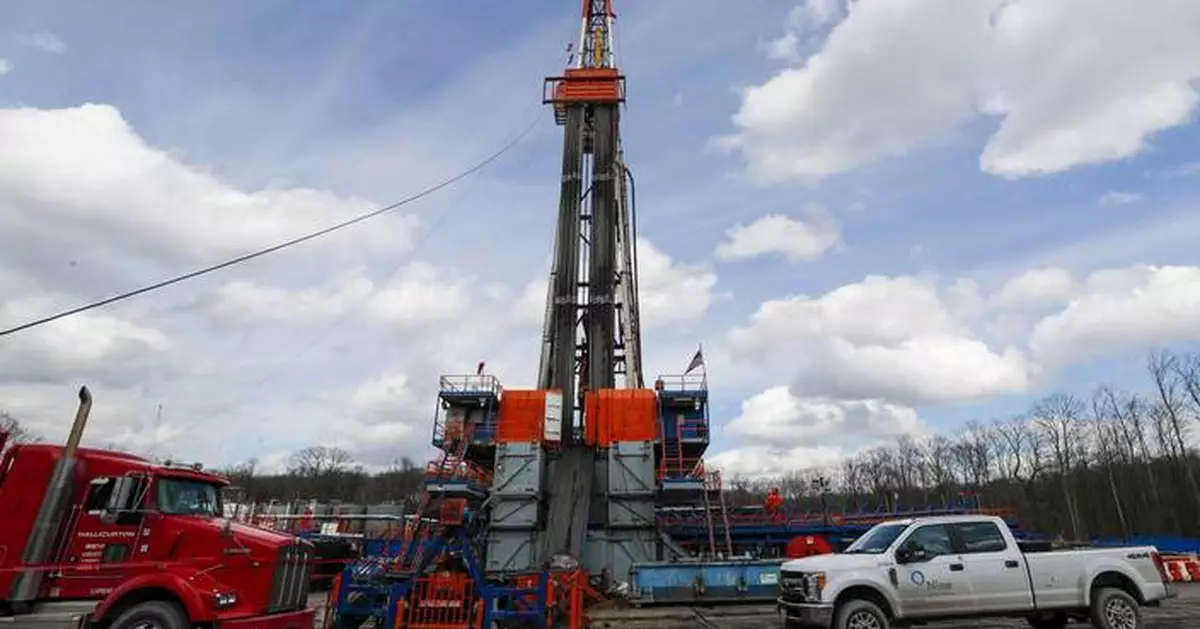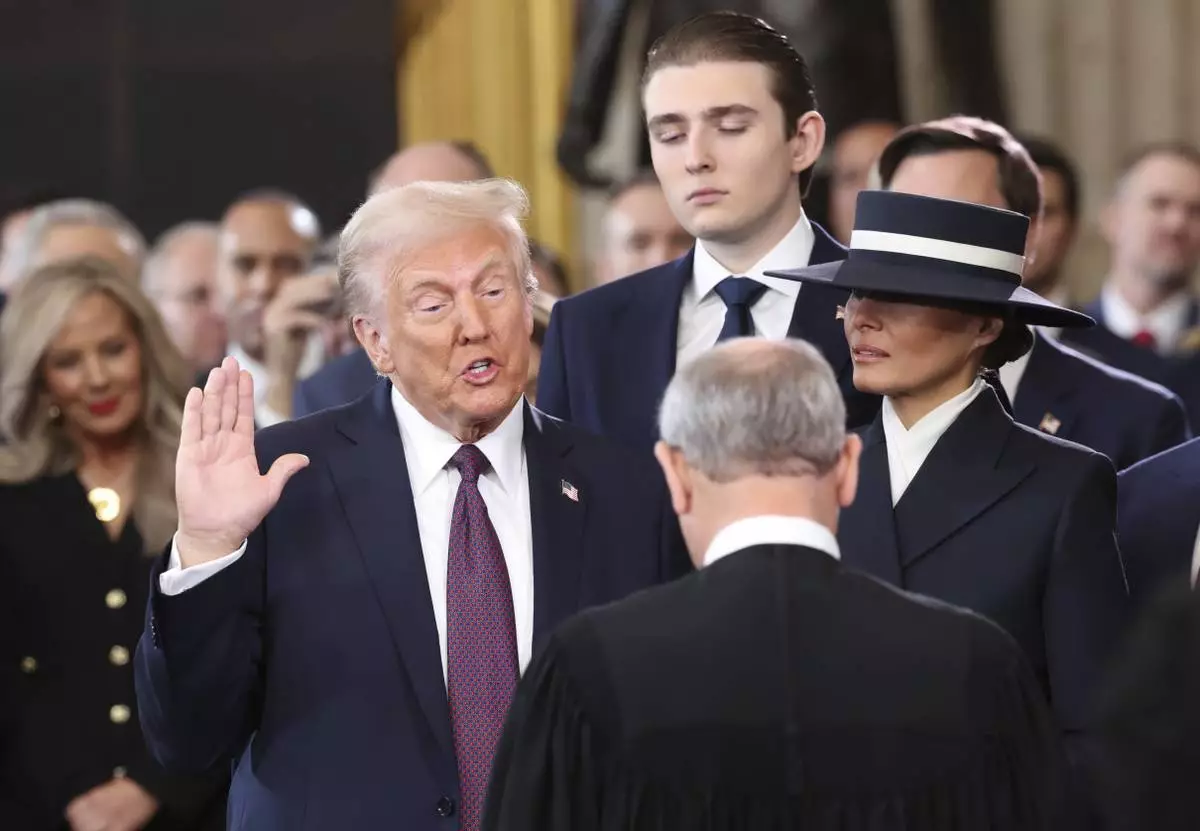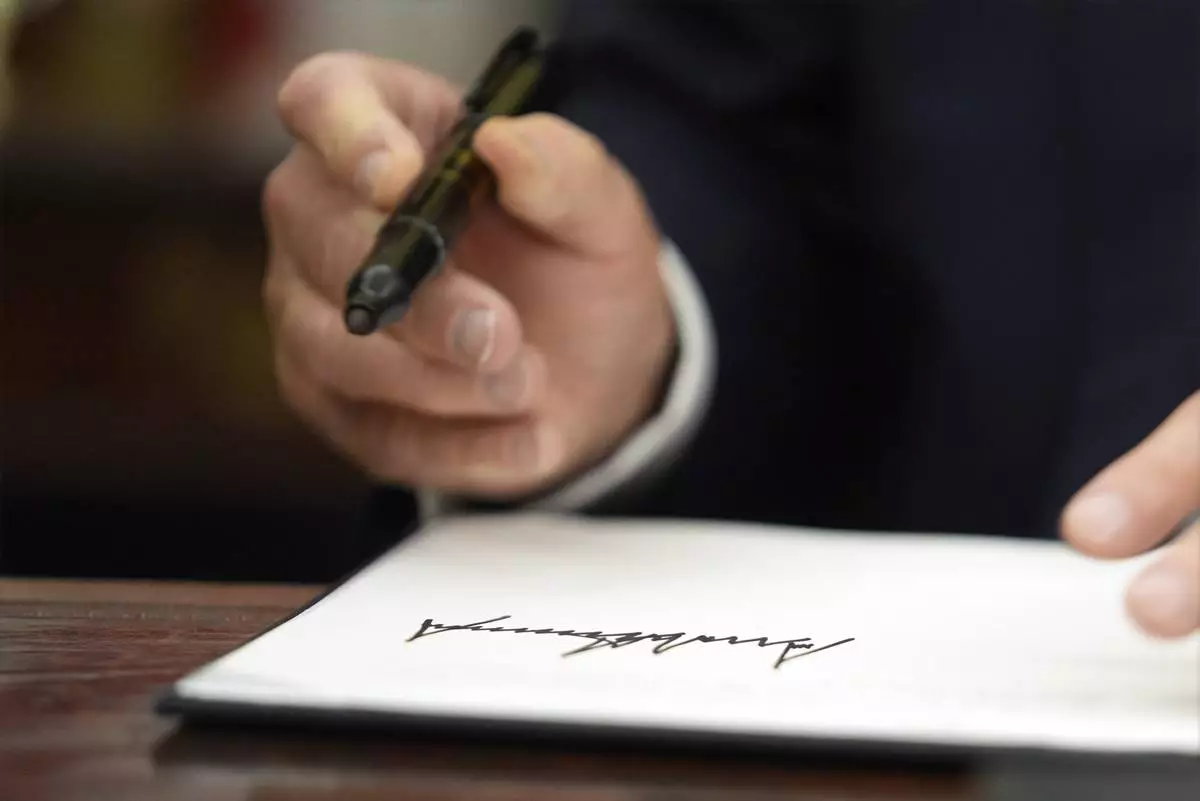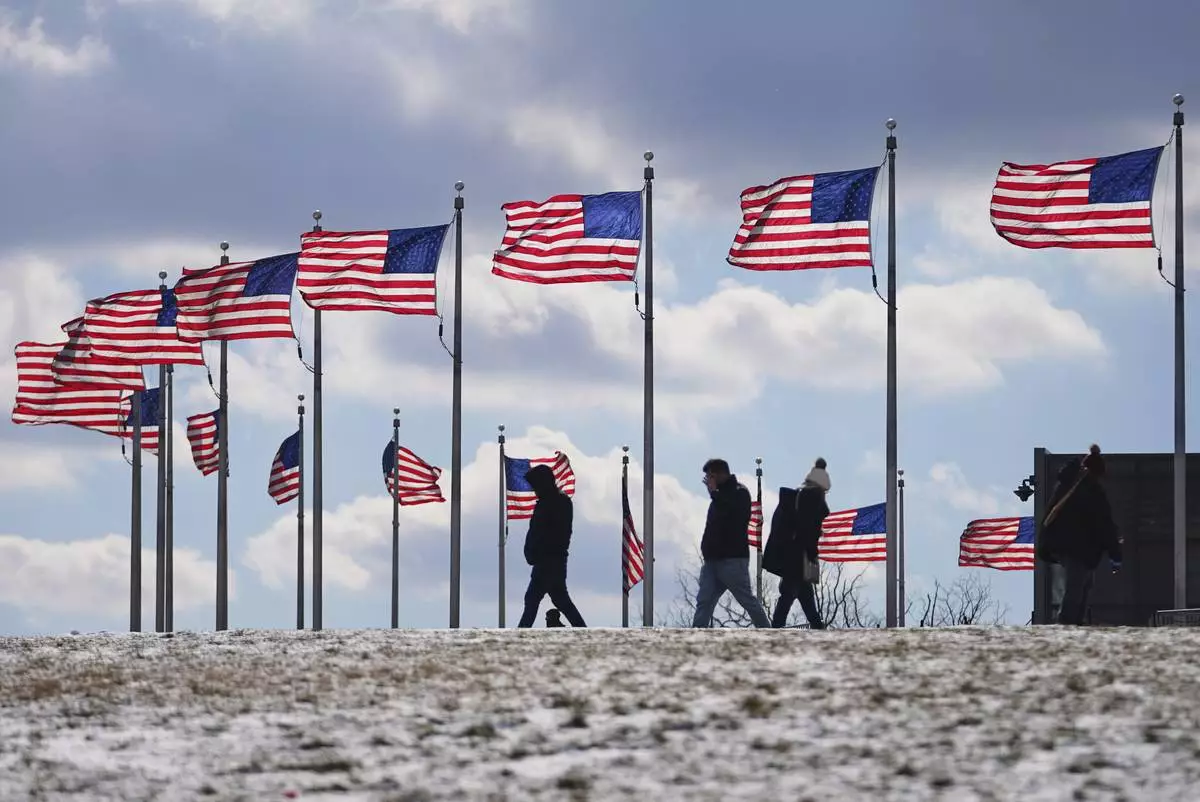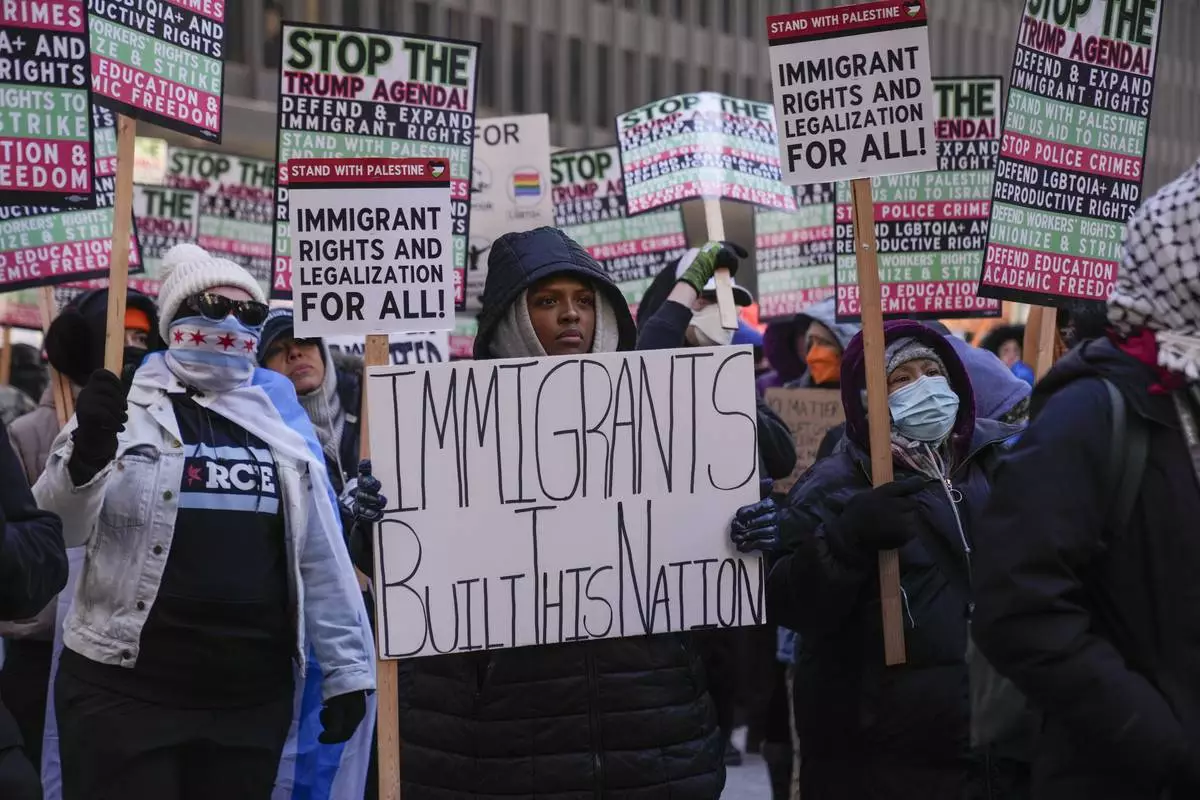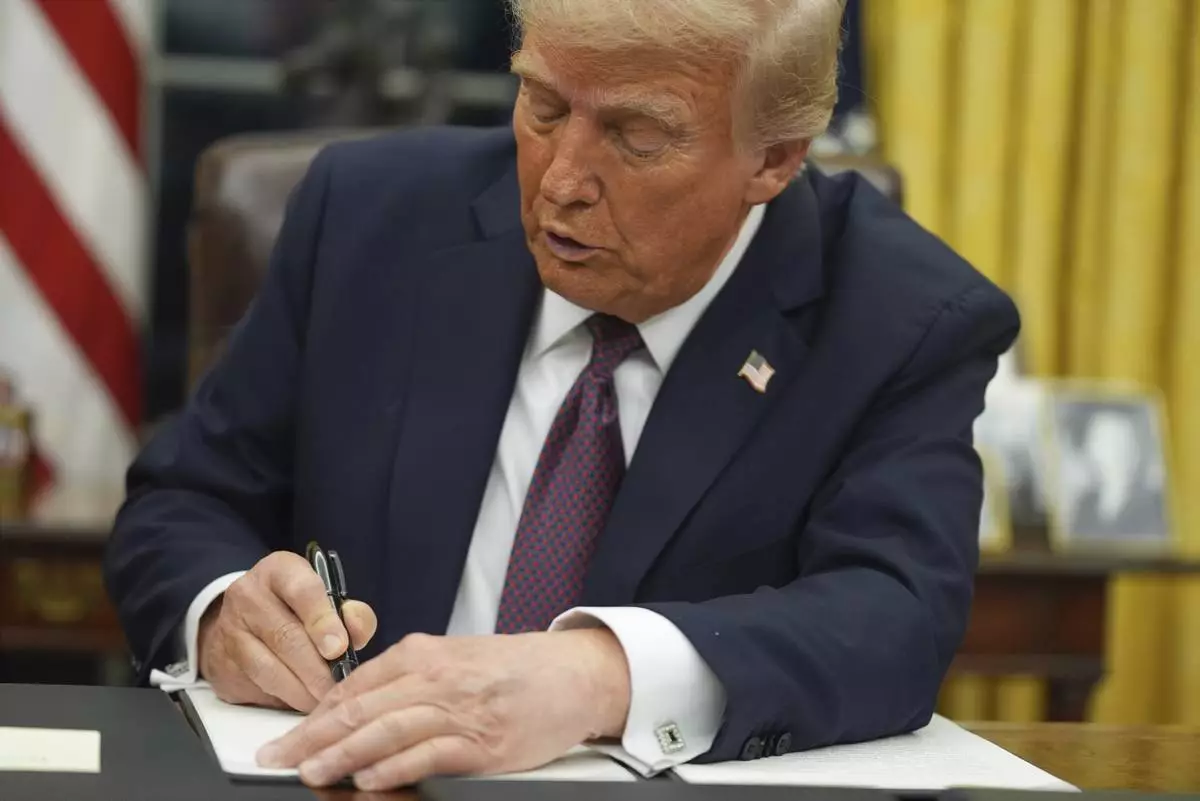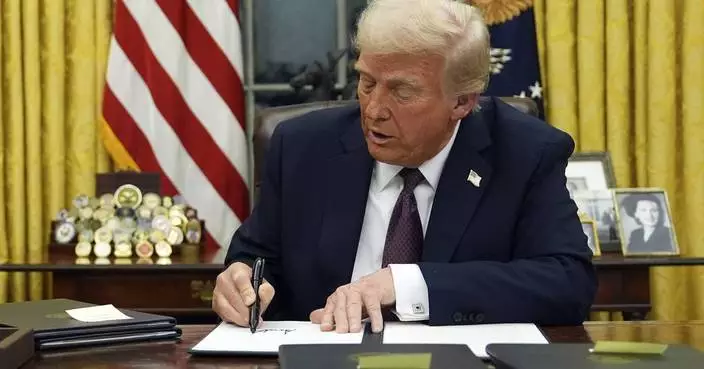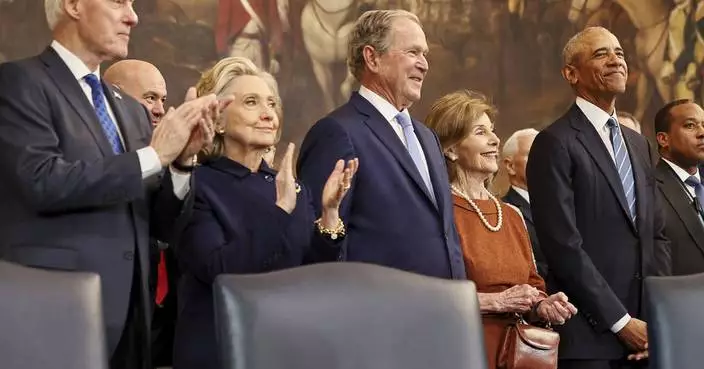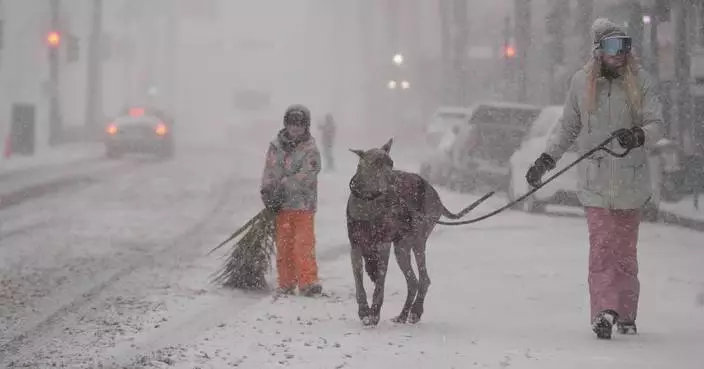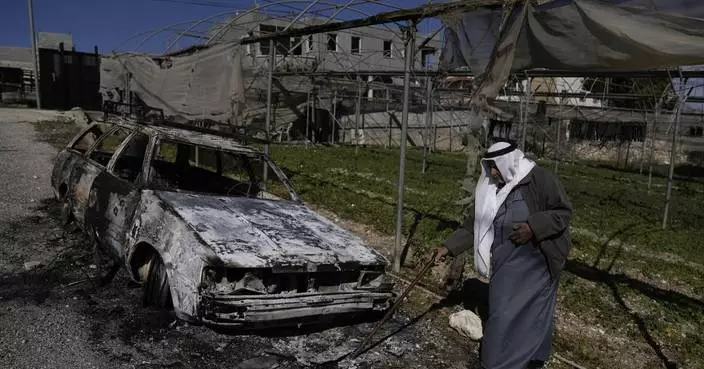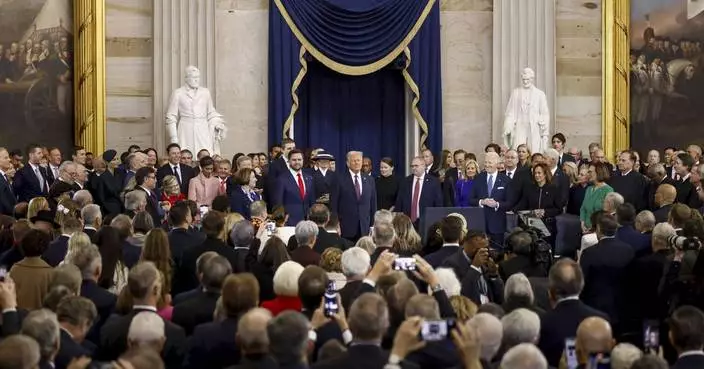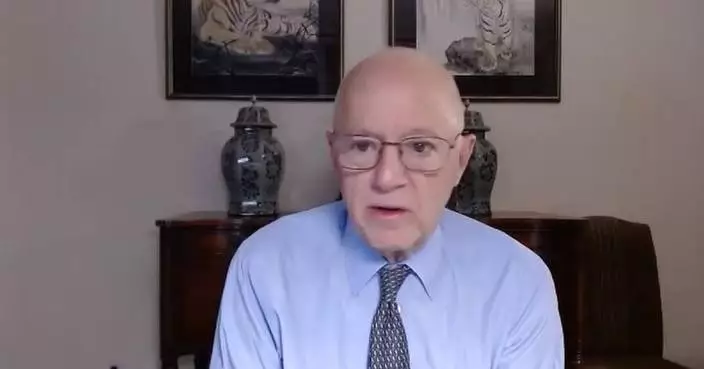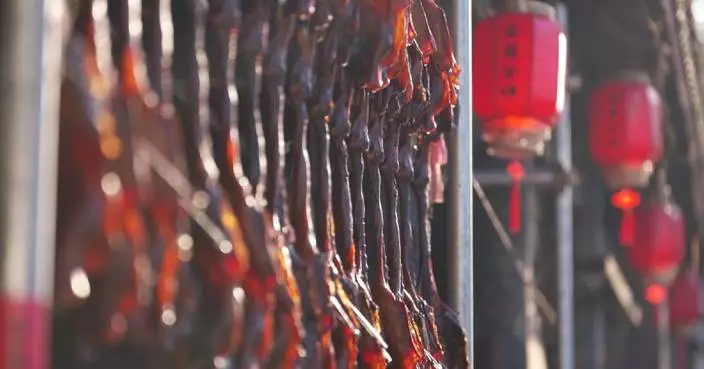HARRISBURG, Pa. (AP) — Facing the need to win battleground Pennsylvania, Vice President Kamala Harris is swearing off any prior assertion that she opposed fracking, but that hasn't stopped Republican Donald Trump from wielding her now-abandoned position to win over voters in a state where the natural gas industry means jobs.
Last week, in his first appearance in Pennsylvania since Harris became the Democrats' presumptive nominee, Trump repeatedly warned that Harris would ban fracking — a position she held as a presidential primary candidate in 2019 — and devastate the economy in the nation's No. 2 natural gas state.
“She's against fracking, she's against oil drilling, she wants everybody to have one electric car and share it with the neighbors," Trump told rallygoers at a Harrisburg rally on Wednesday, which was also his first appearance in the state since he was wounded in a July 13 assassination attempt in Butler County. “Harris has stated repeatedly that she supports, quote, banning fracking. I'll ban fracking, I'll ban it on my first day.”
Harris’ campaign, in a statement, insisted she would not ban fracking, and called Trump’s claims an “attempt to distract from his own plans to enrich oil and gas executives at the expense of the middle class.”
Still, Trump criticized Harris' support as a senator and candidate in 2020's presidential primary for a Democratic resolution to create a “Green New Deal,” a sweeping progressive effort to shift the country toward renewable energy. Trump called the platform — never fully translated into policy proposals — a “$100 trillion green new scam designed to abolish the oil, coal and natural gas industry entirely.”
While Harris considers choosing popular Pennsylvania Gov. Josh Shapiro as a finalist to be her running mate on the Democratic ticket, Trump has made it clear that he won't concede the swing state, part of the decisive “blue wall” along with Michigan and Wisconsin. Trump repeatedly has said his administration would “drill baby drill” and dismissed Harris' change of position with these words of caution: "Remember, a politician always goes back to what their original thought was.”
Fracking is nearly always on the ballot in Pennsylvania. Formally named hydraulic fracturing, it has made the United States an oil and gas superpower over the past decade, along with horizontal drilling.
Republicans routinely attack Democrats over fracking to drive a wedge into the party's fragile alliance between its left wing, which is hostile to fossil fuels, and its bedrock building trade union base, whose workers are building an expanding network of gas pipelines, power plants and processing facilities in Pennsylvania.
Republicans have used similar attacks in the past two election cycles, both unsuccessfully, against Joe Biden in 2020's presidential race and against Sen. John Fetterman in 2022.
To attack Biden in 2020, Republicans seized on a series of confusing statements — such as remarks on the oil industry from a debate just a couple weeks before the election — to claim he intended to “ban” or end national gas extraction. That was not Biden's official position, and if he intended to restrain the extraction method, it was hard to find evidence of it in energy production data during his first three years in office.
Biden has sought to slow down leasing on federal lands and emphasize conservation as part of a large-scale effort to slow global warming. But U.S. natural gas production and crude oil production have hit record monthly highs in the past year, according to federal energy statistics. The same thing has happened with gas production in Pennsylvania, which also has posted record monthly highs during Biden's time in office.
Harris has backed Biden’s plan to reach net-zero greenhouse gas emissions by 2050. But that plan never included a ban on fracking, and Biden has said he viewed those energy sources as necessary during the transition.
Trump, meanwhile, has heavily courted the gas industry in Pennsylvania and has ridiculed the science behind increasingly urgent warnings for immediate action to stave off the worst of climate damage by cutting fossil fuel emissions.
Oil and gas producers have opposed a range of energy policies under Biden, including tougher regulations on tailpipe emissions and vehicle fuel economy that they see as a de facto electric vehicle mandate, clamping down on leases on federal lands and delaying liquefied natural gas projects.
Energy companies want to know whether Harris will continue down those roads.
“It's safe to say that we and a lot of other folks are eager to hear from the vice president,” said Dustin Meyer, a senior vice president at the American Petroleum Institute.
Attacking Harris over fracking is reminiscent of Republican efforts to turn union workers against Democrat Hillary Clinton in 2016. In tenor and scale, Trump's overtures to the industry have echoed the unfulfilled promises he made to save the coal industry during his first campaign.
Clinton was hammered for saying “we’re going to put a lot of coal miners and coal companies out of business” when describing her climate plan, a comment that was used to suggest she had declared war on coal.
Democrats in Pennsylvania — such as Fetterman, Shapiro and U.S. Sen. Bob Casey — have successfully run on getting tough on fracking through stronger regulation. They shun talk of a fracking ban, although they may not necessarily support every aspect of Biden's energy policy if unions oppose it.
When Biden dropped his candidacy, the United Association of Union Plumbers and Pipefitters, whose members work on pipelines and in power plants, quickly endorsed Harris in a unanimous vote.
Mark McManus, the union's general president, pointedly noted that Harris “did have a previous position in a previous role in a different state,” but said she has been clear about her new position on fracking.
“And it’s a good position for the United Association,” McManus said. “She’s a nationwide candidate right now.”
McManus described Harris' energy approach as being joined at the hip with Biden, a Pennsylvania native the union endorsed twice in his races against Trump, including this year's campaign. McManus embraced what he described as an “all of the above energy approach."
Still, in a heavily populated and heavily contested state where Trump won by just over 44,000 votes in 2016 and Biden won by just over 81,000, any marginal change is significant, campaign strategists and pollsters say.
Christopher Borick, director of the Muhlenberg College Institute of Public Opinion in Allentown, said fracking simply won't be a decisive factor for most Pennsylvania voters because opinions on it are highly divided in the state.
The gas industry has flushed money into some local economies. But it has also inspired a backlash in other communities, most notably in Philadelphia’s suburbs.
The sweet spot for statewide candidates — such as Casey, Shapiro and Fetterman — has been not calling for a ban, but calling for tight regulation, clear disclosure about the process and limits on where it can be done, Borick said.
“It’s been successful for all of them,” Borick said, “and that’s where you see Harris going now.”
Follow Marc Levy on Twitter at www.twitter.com/timelywriter.
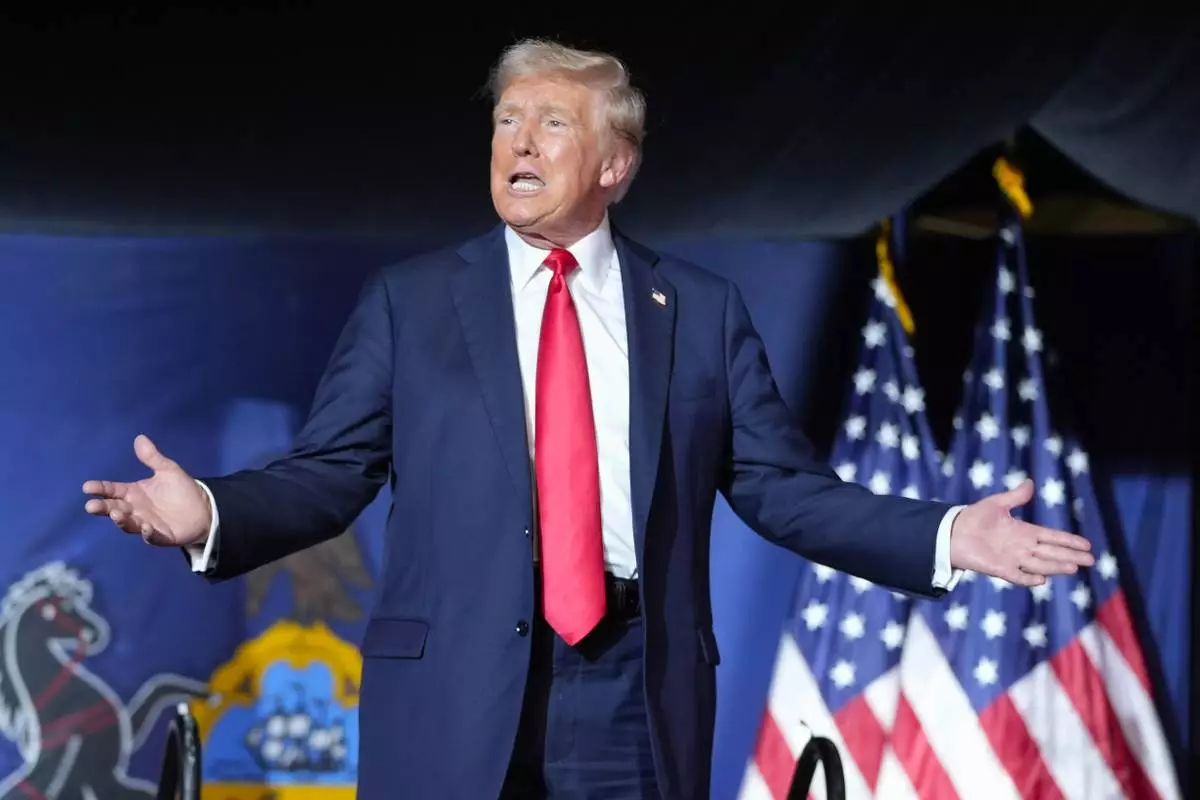
FILE - Republican presidential candidate former President Donald Trump gestures to the crowd as he arrives to speak at a campaign rally, July 31, 2024, in Harrisburg, Pa. Facing the need to win Pennsylvania, Vice President Kamala Harris has sworn off any prior assertion that she opposed fracking. But that hasn't stopped Trump from wielding her now-abandoned position as to win over working-class voters in the key battleground state where the industry means jobs. (AP Photo/Alex Brandon, File)
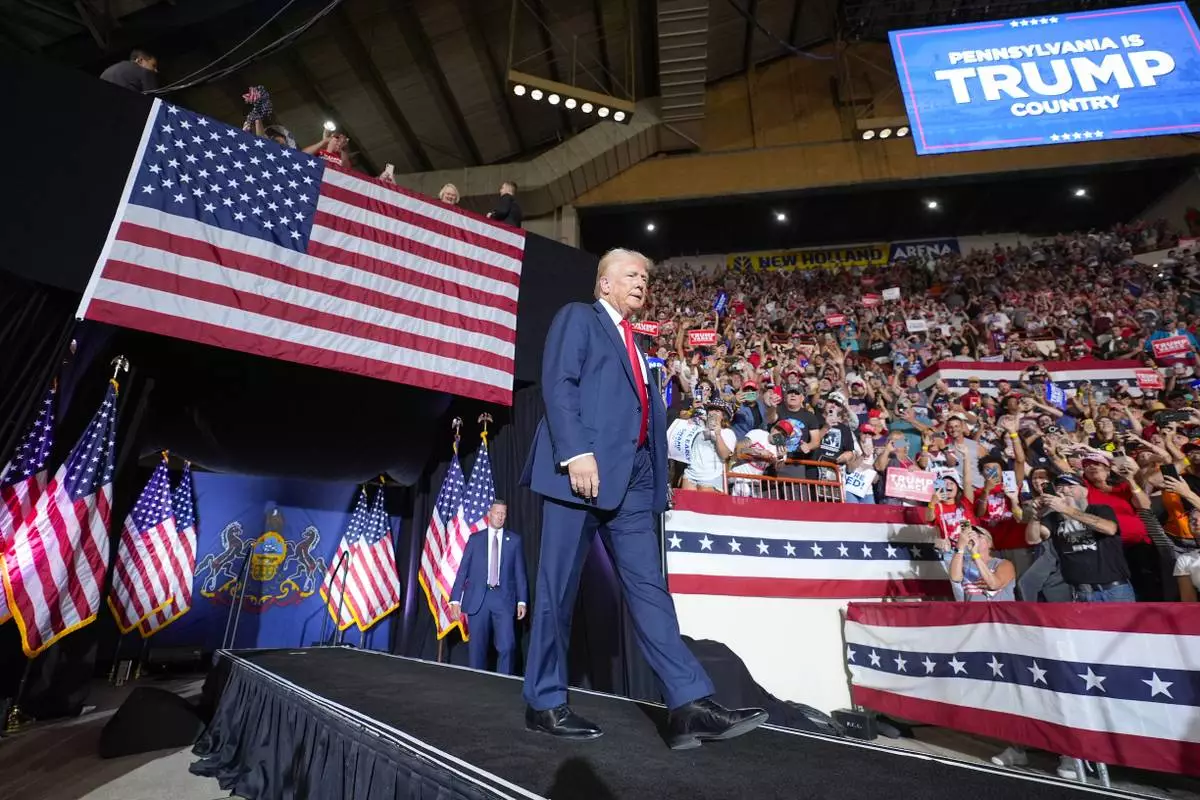
FILE - Republican presidential candidate former President Donald Trump arrives to speak at a campaign rally, July 31, 2024, in Harrisburg, Pa. Facing the need to win Pennsylvania, Vice President Kamala Harris has sworn off any prior assertion that she opposed fracking. But that hasn't stopped Trump from wielding her now-abandoned position as to win over working-class voters in the key battleground state where the industry means jobs. (AP Photo/Alex Brandon, File)
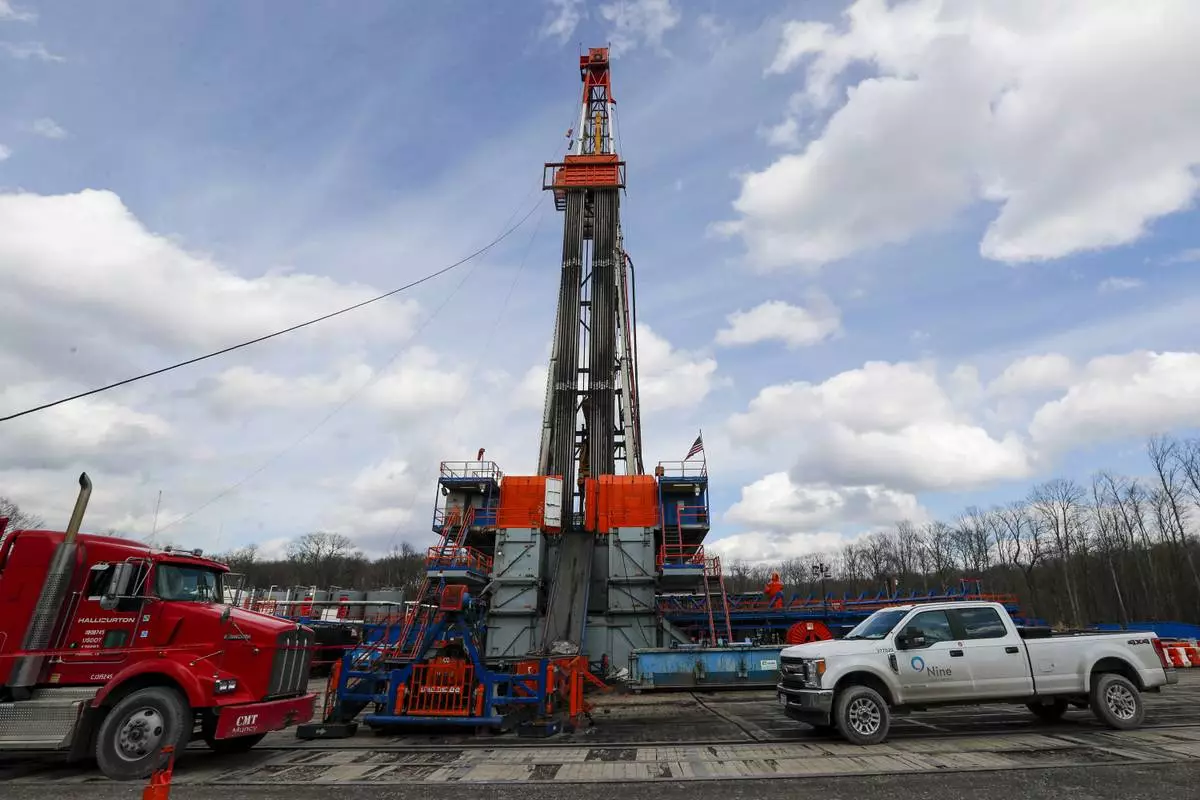
FILE - Work continues at a shale gas well drilling site in St. Mary's, Pa., March 12, 2020. Facing the need to win Pennsylvania, Vice President Kamala Harris has sworn off any prior assertion that she opposed fracking. But that hasn't stopped Republican presidential candidate former President Donald Trump from wielding her now-abandoned position as to win over working-class voters in the key battleground state where the industry means jobs. (AP Photo/Keith Srakocic, File)


